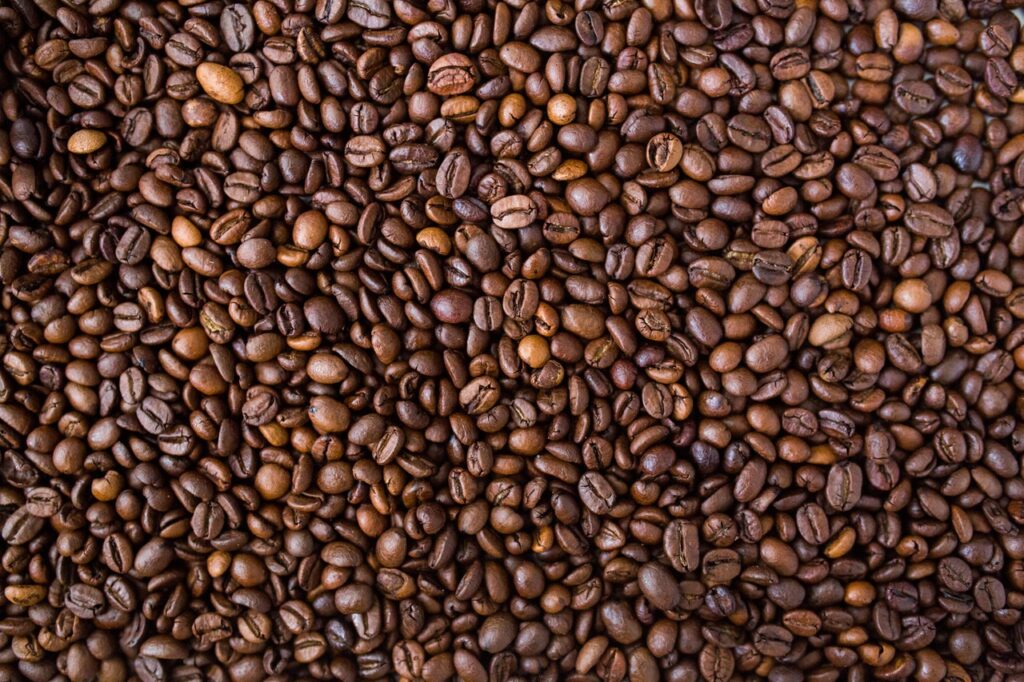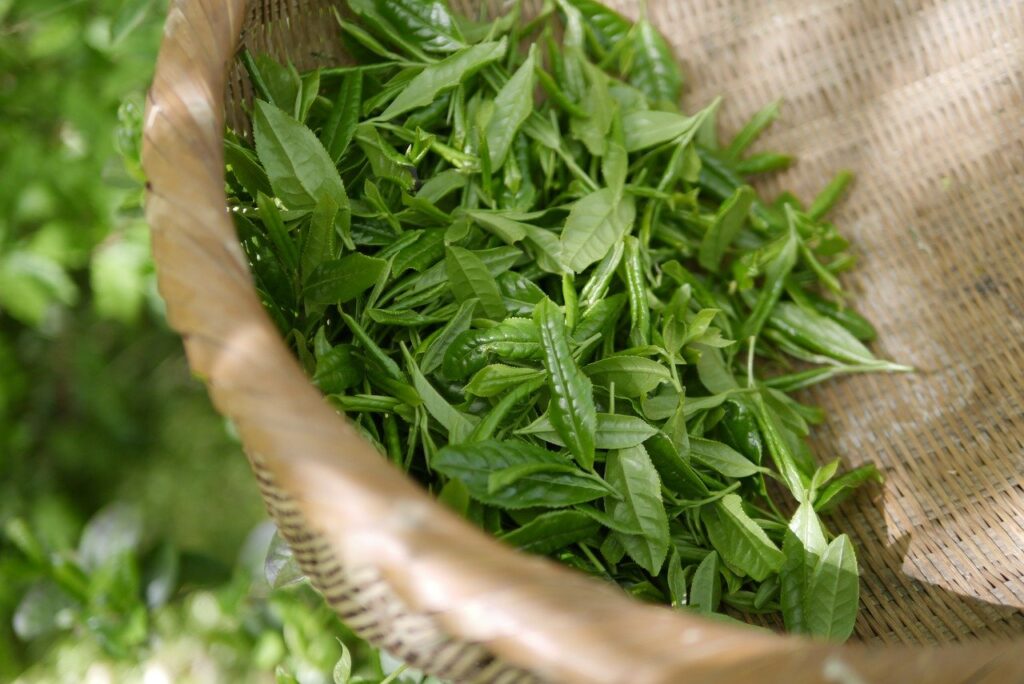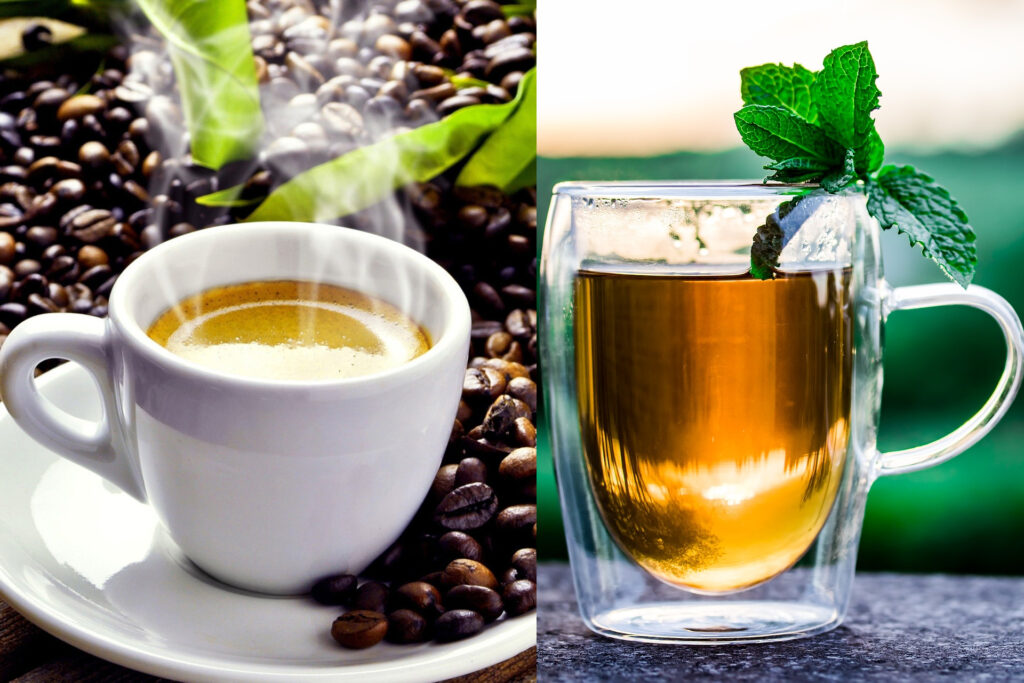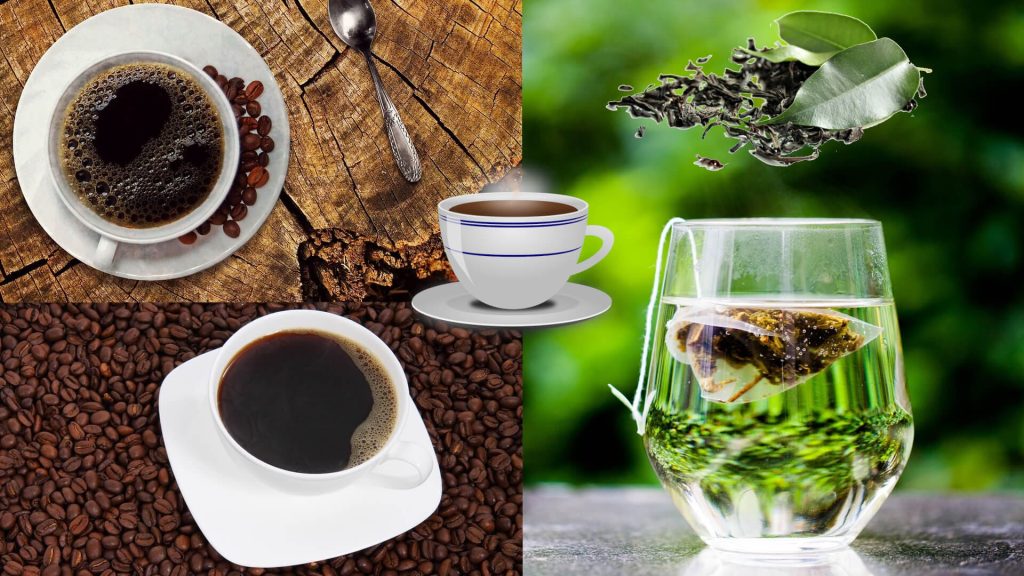Caffeine, a naturally occurring stimulant, is a popular component of various beverages consumed worldwide. Among the most widely enjoyed caffeinated beverages are coffee, tea, and green tea. In this comprehensive guide, we will delve into the world of caffeine, comparing the caffeine content in coffee, tea, and green tea. Additionally, we will explore the unique characteristics and health benefits associated with each beverage, empowering you to make informed choices based on your preferences and wellness goals.
Caffeine in Coffee vs Tea vs Green Tea
Understanding Caffeine
Caffeine belongs to a class of compounds known as methylxanthines, which act as central nervous system stimulants. When consumed, caffeine blocks the action of adenosine, a neurotransmitter that promotes relaxation and sleepiness. As a result, caffeine enhances alertness and temporarily combats fatigue.
Caffeine Content in Coffee
Coffee, the beloved morning beverage for many, is renowned for its invigorating effects primarily attributed to its caffeine content. Caffeine, a natural compound found in coffee beans, stimulates the central nervous system, promoting wakefulness, heightened mental focus, and improved physical performance. However, the caffeine content in coffee can vary significantly based on various factors, including the type of coffee bean, the roast level, the brewing method, and the serving size.

Factors Affecting Caffeine Content in Coffee
- Coffee Bean Type: Different coffee bean varieties, such as Arabica and Robusta, contain varying amounts of caffeine. Robusta beans generally have a higher caffeine content compared to Arabica beans.
- Roast Level: The duration and temperature at which coffee beans are roasted influence the caffeine levels. Contrary to popular belief, darker roasts do not necessarily contain more caffeine than lighter roasts. The roasting process breaks down caffeine, resulting in slightly lower caffeine content in darker roasts.
- Brewing Method: The brewing method impacts caffeine extraction. Espresso, made by forcing hot water through finely ground coffee, typically has a higher concentration of caffeine compared to regular brewed coffee.
- Serving Size: The quantity of coffee consumed directly affects caffeine intake. A standard serving of coffee is considered to be around 8 ounces, but larger cups or multiple servings will contain higher caffeine levels.
Different Types of Coffee and their Caffeine Levels
- Espresso: Known for its concentrated and bold flavor, espresso is a small serving of highly concentrated coffee. It contains approximately 63 milligrams of caffeine per fluid ounce, making it the highest caffeine concentration among coffee beverages.
- Drip Brewed Coffee: This is the most common method of brewing coffee, involving hot water passing through a filter containing ground coffee beans. Drip brewed coffee typically contains around 12-16 milligrams of caffeine per fluid ounce.
- Cold Brew Coffee: Cold brew coffee is made by steeping coffee grounds in cold or room temperature water for an extended period, usually 12-24 hours. The longer extraction time results in a smoother, less acidic brew with slightly higher caffeine content, averaging 15-30 milligrams of caffeine per fluid ounce.
- Instant Coffee: Instant coffee is made by freeze-drying or spray-drying brewed coffee to create a powdered form. While the caffeine content may vary, instant coffee generally contains around 30-90 milligrams of caffeine per serving.
Caffeine Content in Tea
Tea, a beloved beverage with a rich history, also contains caffeine. The caffeine content in tea is influenced by factors such as the type of tea, the quality of the leaves, steeping time, and water temperature. While tea leaves derived from the Camellia sinensis plant contain caffeine, the levels can vary depending on the type of tea and the processing method.
Understanding Tea Types
Tea is classified into several main categories, including black tea, green tea, oolong tea, white tea, and herbal tea. The variations in tea types arise from differences in processing and oxidation levels.

Caffeine Content in Different Tea Types
- Black Tea: Black tea undergoes complete oxidation during processing, resulting in a robust flavor and dark color. On average, black tea contains approximately 40-90 milligrams of caffeine per 8-ounce cup, making it a suitable option for individuals seeking a moderate caffeine boost.
- Green Tea: Green tea stands out with its delicate flavor profile and potential health benefits. The minimal oxidation during processing preserves the natural compounds, including caffeine. On average, green tea contains around 20-45 milligrams of caffeine per 8-ounce cup. This makes it an excellent choice for those looking for a moderate caffeine boost without the jitters sometimes associated with higher caffeine intake.
- Oolong Tea: Oolong tea is partially oxidized, resulting in a flavor profile that falls between black tea and green tea. The caffeine content in oolong tea varies depending on the oxidation level, but it generally contains around 25-50 milligrams of caffeine per 8-ounce cup.
- White Tea: White tea undergoes minimal processing and consists of young tea leaves and buds. It is known for its delicate and subtle flavor. The caffeine content in white tea is generally lower than that in black and green tea, averaging around 15-30 milligrams of caffeine per 8-ounce cup.
- Herbal Tea: Herbal teas, such as chamomile, peppermint, and rooibos, are not derived from the Camellia sinensis plant and are naturally caffeine-free. They offer a wide range of flavors and potential health benefits, making them an excellent choice for individuals looking to avoid caffeine altogether.
Also Read: Coffee Vs Tea – Caffeine Content, Taste, & Coffee and Tea Health Benefits.
Health Benefits of Coffee, Tea, and Green Tea
Beyond their caffeine content, coffee, tea, and green tea offer an array of potential health benefits. Let’s explore the unique properties of each beverage:

Health Benefits of Coffee
- Improved Cognitive Function: The high caffeine content in coffee has been linked to enhanced mental focus, improved alertness, and increased cognitive performance.
- Antioxidant Richness: Coffee is a significant source of antioxidants, which help protect the body against free radicals and oxidative stress. Regular coffee consumption has been associated with a lower risk of diseases such as Parkinson’s disease, type 2 diabetes, and liver diseases.
Health Benefits of Tea
- Antioxidant Power: Tea, including black tea, green tea, and herbal tea, is rich in antioxidants called catechins and flavonoids. These compounds have been linked to reduced oxidative stress, inflammation, and improved overall health.
- Heart Health: Regular tea consumption has been associated with a reduced risk of cardiovascular diseases. The antioxidants present in tea may help lower blood pressure, improve cholesterol levels, and promote heart health.
- Brain Function: Tea’s unique combination of bioactive compounds, including caffeine and L-theanine, has been found to enhance brain function, promote relaxation, and improve focus.
Health Benefits of Green Tea
- Weight Management: Green tea has gained attention for its potential role in weight management. It may boost metabolism, aid in fat oxidation, and assist in maintaining a healthy weight.
- Immune Support: Green tea contains polyphenols that have antimicrobial and antiviral properties. Regular consumption may support a healthy immune system, helping the body fight off infections and illnesses.
- Potential Cancer Protection: Some studies suggest that the antioxidants in green tea may help protect against certain types of cancer, including breast, prostate, and colorectal cancer. However, more research is needed to confirm these findings.
Conclusion
Now you may have a proper idea about caffeine in coffee vs tea vs green tea. Coffee, tea, and green tea offer distinct flavors, caffeine profiles, and health benefits. Coffee is known for its robust taste and higher caffeine content, making it an energizing choice for many. Tea, on the other hand, provides a more diverse range of flavors and caffeine levels, allowing individuals to find the perfect balance. Green tea, specifically, stands out with its potential health benefits and lower caffeine content.
Ultimately, choosing between coffee, tea, or green tea comes down to personal preference, desired caffeine intake, and the unique benefits each beverage offers. So, sit back, relax, and savor your favorite caffeinated drink while enjoying the multitude of flavors and potential health perks it provides.








